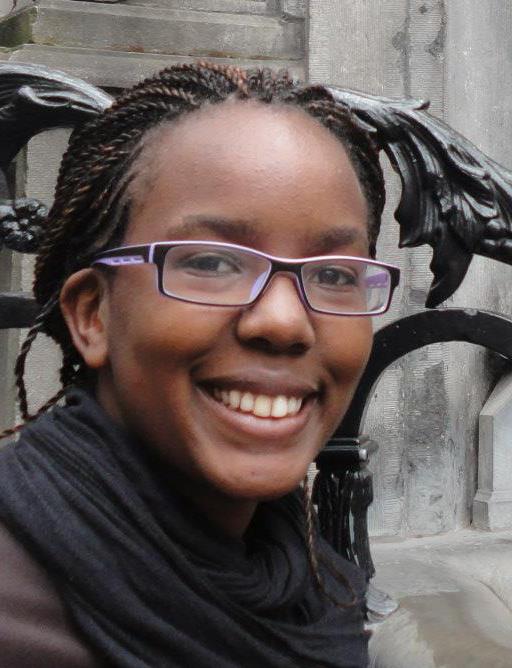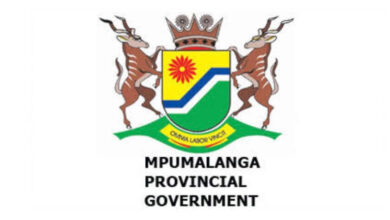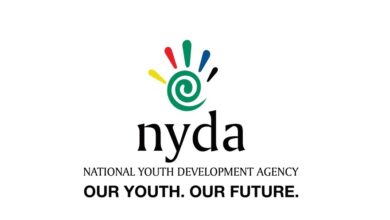Waruguru Wanjau Interview

 Waruguru Wanjau is a young Kenyan who is passionate about all things African, youth engagement and access to quality healthcare for all people. A Christian, daughter, sister and friend.
Waruguru Wanjau is a young Kenyan who is passionate about all things African, youth engagement and access to quality healthcare for all people. A Christian, daughter, sister and friend.
Growing up in Kenya how would you describe your childhood?
I grew up surrounded by with my family always curious creating opportunities where none existed and making my own path.
Something that shaped me is thanks to my mum a TV was not available for majority of my childhood and when it was it was a privilege to be earned. This really impacted me as I had to find creative ways to keep myself busy and also by default ended up spending more time studying and reading books .
I went to the same school for 12 years -Kianda school -from the age of 5 to 17 and this played a big role in shaping who I am now. Going to the same all-girls school for 12 years gave me the space to discover and develop myself in a secure environment where I made a lot of mistakes but grew a lot as a person.
In 2012 you were elected as IFMSA Regional coordinator for Africa region how did that come about?
I began my work in student organizations nationally at medical students association of Kenya- MSAKE. Through my work in MSAKE I represented Kenya in IFMSA and got interested in global health issues. After working in MSAKE and with IFMSA for 2 years I chose to run to be the regional coordinator for Africa as it was a great opportunity to combine two things I love, Africa and global health
What does your work entail?
My work is to be the link between the national member organizations in Africa and the wider International body of IFMSA. I support African members in capacity building, coordinate IFMSA standing committee work on medical education, Human rights and peace, public health and sexual and reproductive health in the national member organizations and I represent Africa’s perspective in IFMSA discussions, regional and international forums.
Do you think the speed at which African women are assuming leadership positions is desirable or there is still room for improvement?
There has been a slow increase but there is still a lot of room for improvement. As an example among our African national member organizations in IFMSA only 15% of the presidents are women and the situation is worse if we take the percentage of women in the executive boards of our national member organizations . So even in our organizations where opportunities are equal African women still seem to be facing barriers to assume leadership positions. The glass ceiling and barriers that lead to lack of access to leadership positions for women in the region need to be addressed.
Nationally in Kenya we have an interesting scenario we had to have special positions created in parliament to ensure we tried to fulfil the constitutional threshold for gender. On the other hand the elected governors and senators where we have no constitutional gender requirements none are women. In appointed state positions we are just making it to appoint one third women because the constitution says so . Therefore where we have to we have women in leadership due to constitutional requirements we do but painstakingly so ,where there are no constitutional provisions we still have 100% male leadership we definitely have some way to go.
There have only been two African women head of state in the last 50 years Statistics like these show that there is some progress but a lot still remains to be done. Rwanda however has more than 50% of members of parliament who are women, the rest of Africa should draw lessons from them.
Who are some of the African women you think have been good role model or reflections of the impact women can have on our continent outside sexism and gender bias?
Chimamanda Ngozi- a Nigerian author embracing what it means to be African and taking Africa to the world… I’m really looking forward to reading her latest book Americah
Amina J Mohamed – a Nigerian and the Special Advisor of the UN Secretary-General on Post-2015. She previously worked with the Nigerian government on development issues.
Dambisa Moyo- a Zambian economist who questions how the world engages with Africa and has never been afraid to go against the status quo. As an African she exemplifies the need to question and be critical. She also provides a good example of why we need to start coming up with our own solutions and ideas which we present to the world.
I admire these women they are great at what they do, they didn’t necessarily approach their work with a gender lens they reached their own accomplishments in a professional manner, keeping community and the African people central to their work
You are also a member of the Lancet-University of Oslo Commission on Global Governance for health- Youth Commission how did that come about?
I worked on social determinants of health (SDH) both within IFMSA and locally. I was invited to join the Youth commission whose work focuses on how global governance processes outside the health system can better protect and promote the health of the world’s populations. It has been exciting to work with a diverse group of young people. The most exciting part of this is that it has been a youth initiative that has meaningfully engaged with youth. Our opinion was taken into account and we were also allowed space to explore our own ideas on the complex area of Global governance for health.
Please tell us about your other areas of activism?
Meaningful youth engagement and the African perspective in global discussions particularly health discussions.
As I have worked in global health I have had varied reception to the fact that I am young . I have had some great experiences but there is not always a lot of room to allow young people to engage in decision making process and dialogue. A lot of the time the issues being discussed affect young people but our views are not always accepted , appreciated or welcomed. There is also some tokenism where young people are to be present as it is politically correct for them to be there but their contributions are not allowed or taken into account.
African perspective is also something I have discovered often misses in global discussions. Not pre-determined African perspectives by someone who has been here for a while or has come to evaluate a situation, but the perspective of those who live the reality every day. If this perspective was allowed to reach global discussions more often, I believe that global discussions would be richer in content and global efforts would be more effective and sustainable.
You were selected for the 2013 MILEAD Fellowship, what inspired you to apply?
I liked the idea of learning from and with other young African women leaders, learning together and also learning from each other. A colleague of mine Selma from Sudan was a fellow last year and she played a big part in encouraging me to apply for the fellowship based on her experience as a fellow.
Why is it important to have initiatives like MILEAD Fellowship in Africa?
So that Africans can start intra-regional dialogue. For me the most exciting aspect of Milead is I get to learn from African leaders who have walked the path and from other young African women from Benin to Swaziland about their experiences. Milead is also important because it allows us to celebrate Africa as Africans, in terms of leadership and women.
What would you like to achieve through attending this fellowship?
My work has been centred on health but the danger is in this field it is very easy to have a very narrow approach. Through this fellowship I hope to broaden my approach on leadership, gain new skills, learn from the other fellows and meet an inspiring group of ladies who are leading change their community. I also hope to discover more about being panafrican and explore feminism .
As a young African are some of the challenges faced by the African youth and how can these be addressed?
Spaces to develop beyond the traditional classroom settings, spaces that allow young Africans to grow their skills, practice creativity and think critically.
Young Africans also lack spaces to be involved in governance . Not as government officials but as young citizens who are important stakeholders in their countries and region. Development is an all-encompassing agenda and we need spaces, forums and opportunities to be part of this as young Africans.
To address this challenge governments and institutions should work with youth to ensure they have quality relevant education and opportunities. Ensure that they have access to policy spaces and means to engage inside these policy spaces.
If you were president of Kenya for a day what would be the first thing you would do?
Wake up then I would talk to all the Kenyan leaders and explain to them that leadership is about sacrifice and they need to leave behind legacies of making Kenyan lives better and not just enriching themselves, because the country does not grow because a few more people are richer it grows because we have less people living in poverty, access to healthcare, access to education and active, engaged, patriotic citizens.
How can Africa capitalize on its demographic dividend?
Engage with it! Allow the Africans who make up the demographic dividend to be part of the solution, part of the action, part of the discussions, part of the African renaissance.
Who are your top 3 role models in Kenya?
Patsor Muriithi Wanjau– lead pastor at Mavuno church
Amina Mohamed – Kenya cabinet secretary for foreign affairs
Professor Julius Ogengo – Head of UNES and former chair of Human Anatomy, University of Nairobi
What I admire most about these people is they identified what they were passionate about dedicated themselves to it and built careers around it.
What are your favourite hangout spots in Kenya?
The Kenya coast – I never understood why people travelled so far to come to the Kenyan beaches but after I spending some time on other beaches I now appreciate the magic that is the Kenyan coast!
What music do you listen to?
Classical, afro fusion and, latino music with a special affinity for Colombian music.
What do you do for fun?
Spend time with friends… as I am quite busy between med school and my other interests , spending a relaxed afternoon or evening with friends including my siblings catching up is something I often look forward to.
What are your dreams for Kenya?
That we continue with the gains we have made in the last few years in terms of freedoms. That soon healthcare will be an important area in Kenya’s development agenda because at the moment it is not. I hope we can see strides in Kenya’s social areas especially public healthcare and quality of education just as we have seen in ICT and infrastructure over the last few years. We have made great economic gains but socially we have areas we can improve. I hope we move forward as a nation and not leave anyone behind. We frequently talk about the great economic gains that Kenya has made but rarely do we hear about inequality in our society.
How can other youth connect with you?
Twitter: @lagugu
Email: waruguruwanjau@gmail.com




